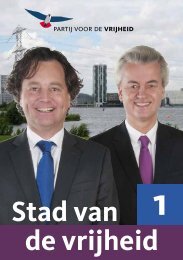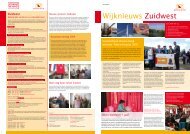freakonomics
freakonomics
freakonomics
You also want an ePaper? Increase the reach of your titles
YUMPU automatically turns print PDFs into web optimized ePapers that Google loves.
One group of mutual fund companies let preferred customers trade at preferred prices,<br />
and another group was charged with hiding management fees.<br />
Though extraordinarily diverse, these crimes all have a common trait: they were sins of<br />
information. Most of them involved an expert, or a gang of experts, promoting false<br />
information or hiding true information; in each case the experts were trying to keep the<br />
information asymmetry as asymmetrical as possible.<br />
The practitioners of such acts, especially in the realm of high finance, inevitably offer this<br />
defense: “Everybody else was doing it.” Which may be largely true. One characteristic of<br />
information crimes is that very few of them are detected. Unlike street crimes, they do<br />
not leave behind a corpse or a broken window. Unlike a bagel criminal—that is, someone<br />
who eats one of Paul Feldman’s bagels but doesn’t pay—an information criminal<br />
typically doesn’t have someone like Feldman tallying every nickel. For an information<br />
crime to reach the surface, something drastic must happen. When it does, the results tend<br />
to be pretty revealing. The perpetrators, after all, weren’t thinking about their private<br />
actions being made public. Consider the Enron tapes, the secretly recorded conversations<br />
of Enron employees that surfaced after the company imploded. During a phone<br />
conversation on August 5, 2000, two traders chatted about how a wildfire in California<br />
would allow Enron to jack up its electricity prices. “The magical word of the day,” one<br />
trader said, “is ‘Burn, Baby, Burn.’” A few months later, a pair of Enron traders named<br />
Kevin and Tom talked about how California officials wanted to make Enron refund the<br />
profits of its price gouging.<br />
KEVIN: They’re fucking taking all the money back from you guys? All the money you<br />
guys stole from those poor grandmas in California?<br />
BOB: Yeah, Grandma Millie, man.<br />
KEVIN: Yeah, now she wants her fucking money back for all the power you jammed<br />
right up her ass for fucking $250 a megawatt hour.<br />
If you were to assume that many experts use their information to your detriment, you’d<br />
be right. Experts depend on the fact that you don’t have the information they do. Or that<br />
you are so befuddled by the complexity of their operation that you wouldn’t know what<br />
to do with the information if you had it. Or that you are so in awe of their expertise that<br />
you wouldn’t dare challenge them. If your doctor suggests that you have angioplasty—<br />
even though some current research suggests that angioplasty often does little to prevent<br />
heart attacks—you aren’t likely to think that the doctor is using his informational<br />
advantage to make a few thousand dollars for himself or his buddy. But as David Hillis,<br />
an interventional cardiologist at the University of Texas Southwestern Medical Center in<br />
Dallas, explained to the New York Times, a doctor may have the same economic<br />
incentives as a car salesman or a funeral director or a mutual fund manager: “If you’re an<br />
invasive cardiologist and Joe Smith, the local internist, is sending you patients, and if you<br />
tell them they don’t need the procedure, pretty soon Joe Smith doesn’t send patients<br />
anymore.”









